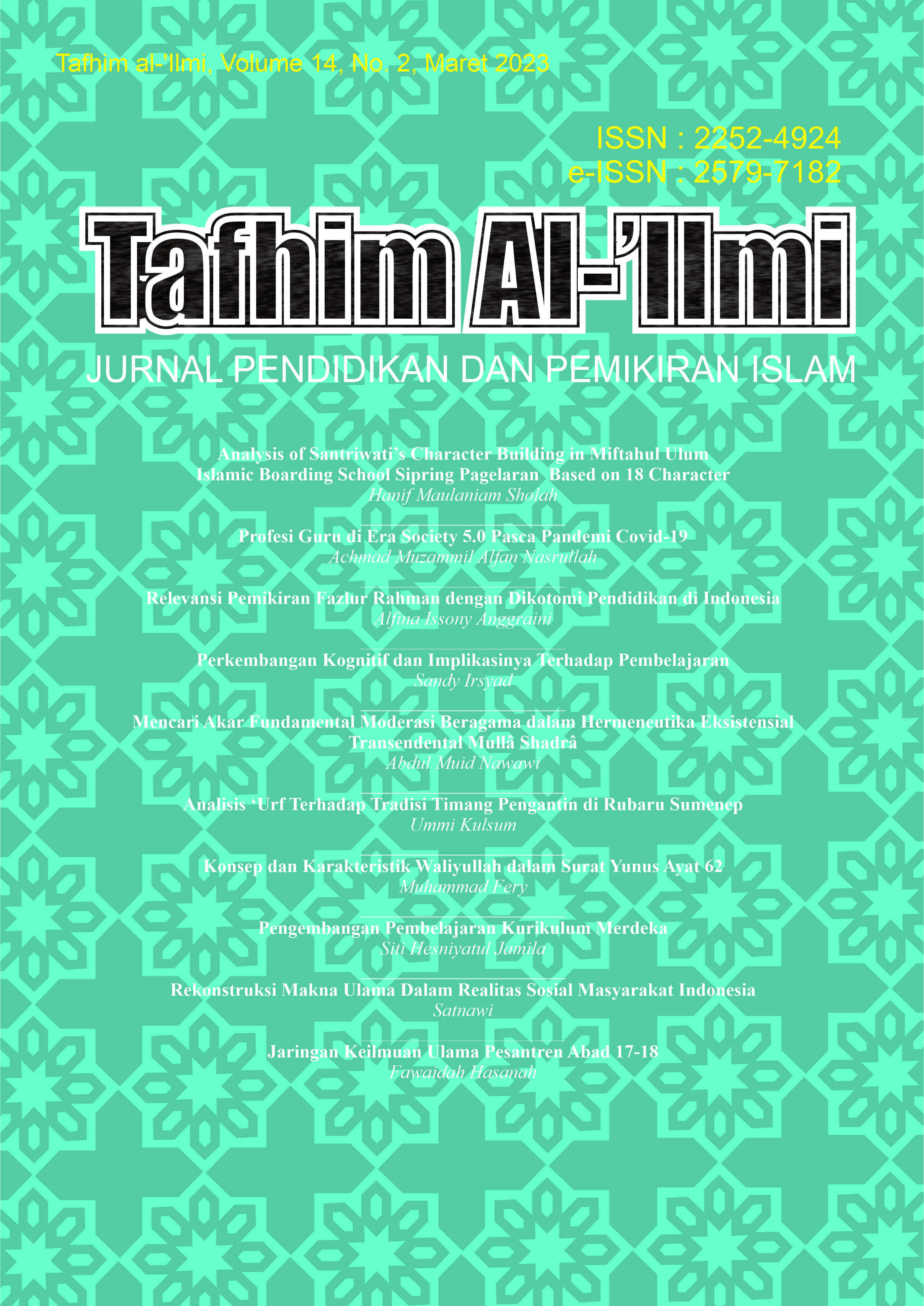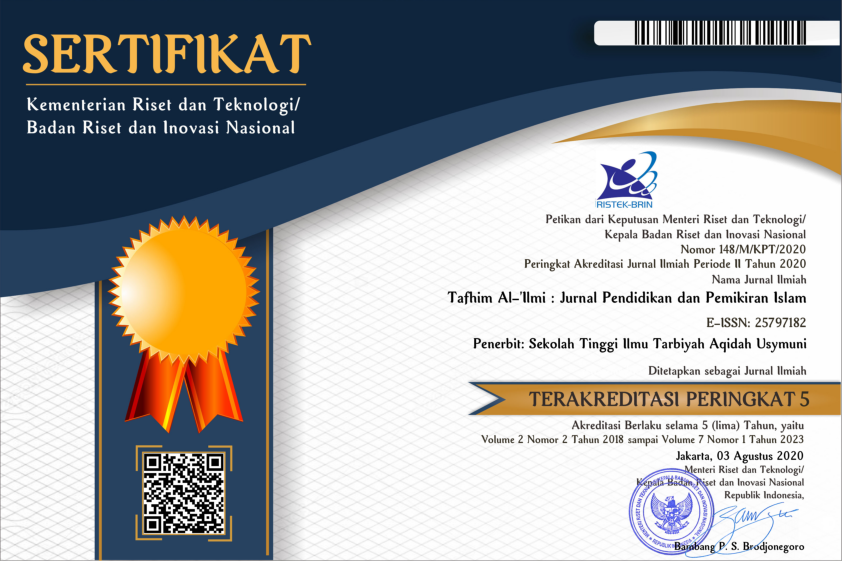Rekonstruksi Makna Ulama dalam Realitas Sosial Masyarakat Indonesia
DOI:
https://doi.org/10.37459/tafhim.v14i2.6572Abstract
For the Muslim community, ulama are central figures in ubudiyah and social affairs. Therefore, in the social life of Indonesian society, ulama get a previllage that is not owned by ordinary people. In older references, scholars are known by two termonologies; Scholars of Salaf and Khalaf. While in the context of Indonesian society, ulama are often identified with kiai who own or nurture pesantren. However, over time, in Indonesia many more varied terms of ulama have emerged; Spiritual scholars, campus scholars, pesantren scholars, advocate scholars, political scholars, and not to mention also those who have recently been discussed, namely women scholars. The emergence of highly varied clerical terminology indicates a new, broader reinterpretation in the development of a more dynamic Indonesian Muslim Society. This research is a library research that examines the development of the meaning of scholars through literature search. In the conclusion of this study, it is explained that ulama or kiai is a person who has spiritual and scientific depth (religious or general) that is integrated with noble morals that can be exemplified, and cares about the problems experienced by the ummah. Therefore, the formulation of ulama is not only addressed to those who own or nurture pesantren, but also addressed to ulama who are often found in the realm of academics, social movements, and politics. Keywords: Contemporary Ulama, Indonesian SocietyÂDownloads
Published
2023-06-09
How to Cite
Satnawi, S. (2023). Rekonstruksi Makna Ulama dalam Realitas Sosial Masyarakat Indonesia. Tafhim Al-’Ilmi, 14(2), 267–278. https://doi.org/10.37459/tafhim.v14i2.6572
Issue
Section
Articles
License

This work is licensed under a Creative Commons Attribution-ShareAlike 4.0 International License.
Artikel yang dimuat dalam jurnal ini boleh disebarluaskan, diterbitkan kembali, dengan syarat mencantumkan bahwa artikel tesebut telah dimuat di jurnal Tafhim al-'Ilmi dengan mencantumkan volume, nomor, dan halaman artikel terkait.







